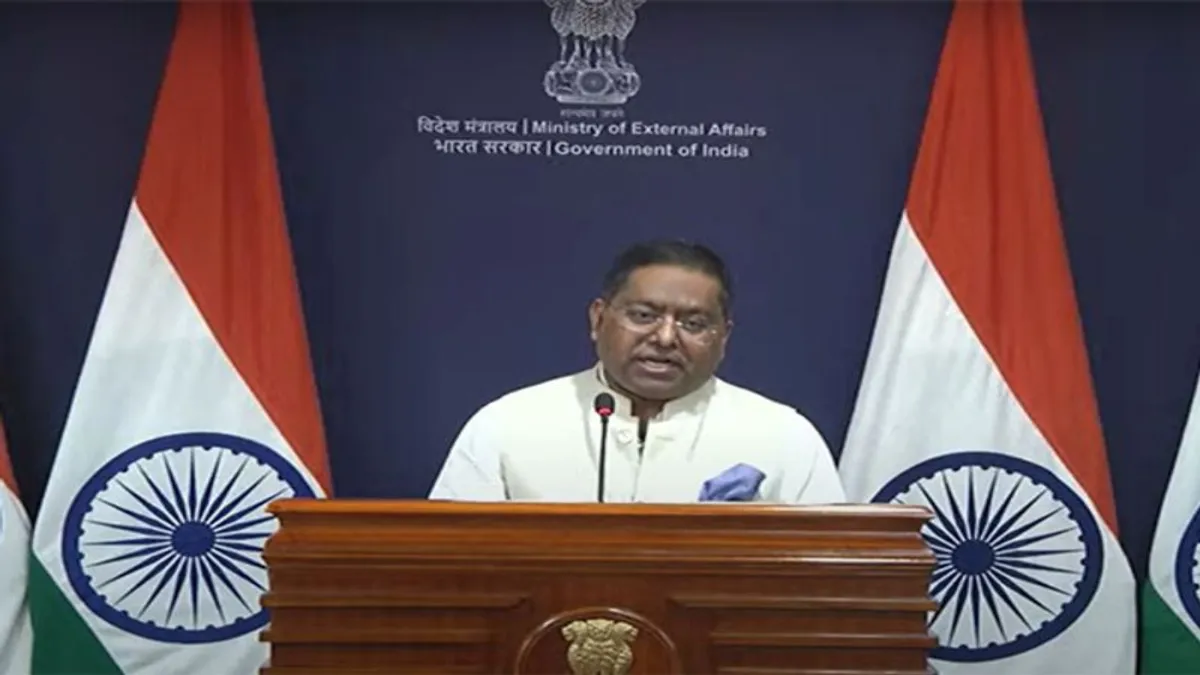New Delhi: India on Thursday condemned a series of hostile statements from Pakistan’s leadership, cautioning that any “misadventure” would invite “painful consequences,” and calling Islamabad’s rhetoric a familiar tactic to fuel anti-India sentiment and deflect from its own domestic failures.
MEA spokesperson Randhir Jaiswal said New Delhi has noted a “continuing pattern of reckless, war-mongering and hateful comments” from Pakistani leaders, urging Islamabad to dial down its rhetoric and underscoring that recent events have already demonstrated the costs of miscalculation.
The sharp response followed remarks by Pakistan Prime Minister Shehbaz Sharif, who declared India would not be allowed to take “even one drop” of Pakistan’s water after New Delhi put the 1960 Indus Waters Treaty “in abeyance” following the April 22 Pahalgam terror attack that killed 26 people, a suspension India has linked to Pakistan’s support for cross-border terrorism. Sharif warned Pakistan would “teach a lesson” if India attempted to hold back flows, repeating Islamabad’s claim that such action would amount to war.
Former foreign minister Bilawal Bhutto-Zardari escalated the rhetoric by likening the treaty pause to an attack on the Indus Valley civilisation and vowing Pakistan would not back down if “forced into war,” as public messaging hardened in Islamabad.
The exchange also featured an unusual interjection from actor-turned-BJP leader Mithun Chakraborty, who threatened Pakistan with “a series of BrahMos missiles” and made a crude remark about a dam, which he said was aimed at Pakistan’s establishment and not its people—comments that drew attention amid the intensifying war of words.
Pakistan Army chief Gen Asim Munir, speaking to the diaspora in Tampa, Florida, said Islamabad would “destroy any dam” India builds to block water and asserted the Indus “is not the Indians’ family property,” reinforcing threats around the water dispute. India accused Pakistan of “nuclear sabre-rattling,” questioned the integrity of its nuclear command and control, and noted with regret that Munir made such remarks “from the soil of a friendly third country,” while reiterating it would take all steps necessary to protect national security.
The backdrop is Operation Sindoor, launched by India on May 7 against terrorist infrastructure in Pakistan and Pakistan-occupied Kashmir after the Pahalgam attack; after four days of drone and missile exchanges, the two sides reached an understanding on May 10 to cease firing, with India later affirming the Indus Waters Treaty would remain paused until Pakistan “credibly and irrevocably” abandons support for cross-border terroris
